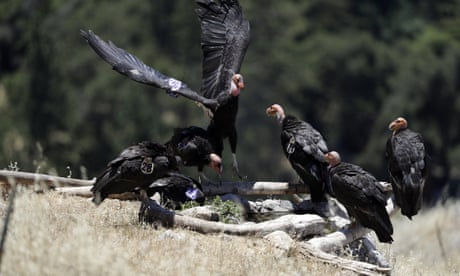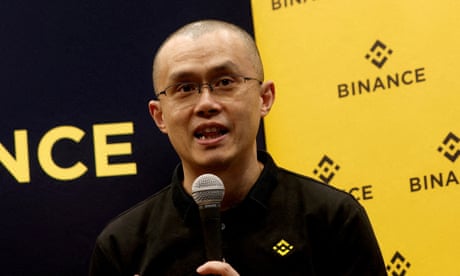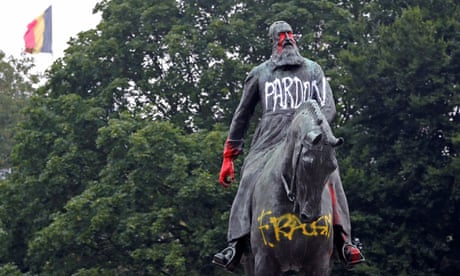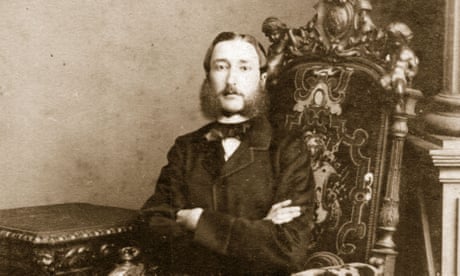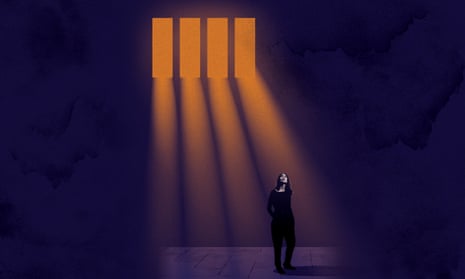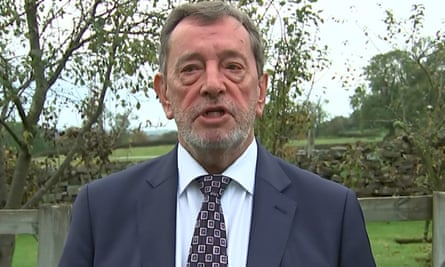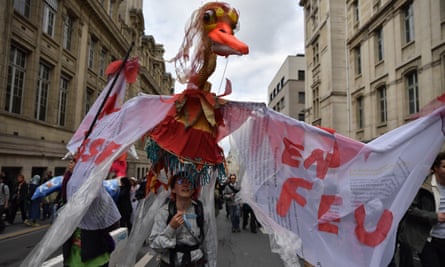CRIMINAL CAPITALI$M
Walgreens reaches $230m settlement with San Francisco over opioids crisis
Company averts a trial to determine damages as drug-related deaths surged by 41% in the city in the first quarter of this year
in Los Angeles and agencies
Wed 17 May 2023
San Francisco has reached a $230m settlement with Walgreens over the corporation’s role in the city’s unprecedented opioid crisis.
The settlement is the largest ever awarded to a local government amid years of continuing, nationwide opioid-centered litigation, according to San Francisco’s city attorney.
The agreement comes nine months after a federal judge found the company’s failures played a “substantial” role in a crisis that has had “catastrophic” effects on the city, overwhelming hospitals and devastating neighborhoods. The US district judge Charles Breyer also faulted Walgreens for its “15-year failure” to properly scrutinize opioid prescriptions and flag possible misuse of the sometimes highly addictive drugs.
In his ruling 10 August 2022, Breyer found that Walgreens had a profit-driven “fill, fill, fill” culture in dispensing powerful opioids including fentanyl, oxycontin and oxycodone.
“This decision gives voice to the thousands of lives lost to the opioid epidemic,” David Chiu, San Francisco’s city attorney, said in a statement. “This crisis did not come out of nowhere. It was created by the opioid industry, and local jurisdictions like San Francisco have had to shoulder the burden for far too long.”
Walgreens’s settlement averts a trial to determine damages. In a statement, Walgreens said it “disputes liability” and did not admit fault, but that settling would allow it to focus on patients, customers and communities. “Our thoughts are with those impacted by this tragic crisis,” it added.
The Deerfield, Illinois-based company had been the only remaining defendant in San Francisco’s civil lawsuit, after several drugmakers and distributors reached settlements worth more than $120m.
Breyer found that Walgreens’s San Francisco pharmacies had received more than 1.2m opioid prescriptions with “red flags” from 2006 to 2020, yet performed due diligence on less than 5% before dispensing them.
The city attorney’s office said money from the settlement would be used to help San Francisco fight its drug crisis.
The settlement was far less than the city had initially requested. San Francisco had estimated it might cost $8.1bn to abate the opioid crisis, and that Walgreens was legally liable for the entire amount.
Overdoses in San Francisco have reached unprecedented highs in recent years. Drug-related deaths surged by 41% in San Francisco in the first quarter of this year – with one person dying of an accidental overdose every 10 hours. The city saw 200 people die of overdoses in the first three months of this year compared with 142 in the same months a year ago, according to reports by the San Francisco medical examiner.
The surge in deaths began in December and by January the city had seen 82 deaths, putting the city’s overdose fatalities at an all-time high. This rise came just after the city closed a key outreach center, where people were using drugs with medical supervision, and increased policing in San Francisco’s long-under-resourced Tenderloin district.
“We have seen the devastating impacts of opioid addiction in our most vulnerable communities and this decision is an important step forward in our efforts to save lives,” said Dr Grant Colfax, the director of the San Francisco department of public health, in a statement released by the city attorney’s office.
Wed 17 May 2023
San Francisco has reached a $230m settlement with Walgreens over the corporation’s role in the city’s unprecedented opioid crisis.
The settlement is the largest ever awarded to a local government amid years of continuing, nationwide opioid-centered litigation, according to San Francisco’s city attorney.
The agreement comes nine months after a federal judge found the company’s failures played a “substantial” role in a crisis that has had “catastrophic” effects on the city, overwhelming hospitals and devastating neighborhoods. The US district judge Charles Breyer also faulted Walgreens for its “15-year failure” to properly scrutinize opioid prescriptions and flag possible misuse of the sometimes highly addictive drugs.
In his ruling 10 August 2022, Breyer found that Walgreens had a profit-driven “fill, fill, fill” culture in dispensing powerful opioids including fentanyl, oxycontin and oxycodone.
“This decision gives voice to the thousands of lives lost to the opioid epidemic,” David Chiu, San Francisco’s city attorney, said in a statement. “This crisis did not come out of nowhere. It was created by the opioid industry, and local jurisdictions like San Francisco have had to shoulder the burden for far too long.”
Walgreens’s settlement averts a trial to determine damages. In a statement, Walgreens said it “disputes liability” and did not admit fault, but that settling would allow it to focus on patients, customers and communities. “Our thoughts are with those impacted by this tragic crisis,” it added.
The Deerfield, Illinois-based company had been the only remaining defendant in San Francisco’s civil lawsuit, after several drugmakers and distributors reached settlements worth more than $120m.
Breyer found that Walgreens’s San Francisco pharmacies had received more than 1.2m opioid prescriptions with “red flags” from 2006 to 2020, yet performed due diligence on less than 5% before dispensing them.
The city attorney’s office said money from the settlement would be used to help San Francisco fight its drug crisis.
The settlement was far less than the city had initially requested. San Francisco had estimated it might cost $8.1bn to abate the opioid crisis, and that Walgreens was legally liable for the entire amount.
Overdoses in San Francisco have reached unprecedented highs in recent years. Drug-related deaths surged by 41% in San Francisco in the first quarter of this year – with one person dying of an accidental overdose every 10 hours. The city saw 200 people die of overdoses in the first three months of this year compared with 142 in the same months a year ago, according to reports by the San Francisco medical examiner.
The surge in deaths began in December and by January the city had seen 82 deaths, putting the city’s overdose fatalities at an all-time high. This rise came just after the city closed a key outreach center, where people were using drugs with medical supervision, and increased policing in San Francisco’s long-under-resourced Tenderloin district.
“We have seen the devastating impacts of opioid addiction in our most vulnerable communities and this decision is an important step forward in our efforts to save lives,” said Dr Grant Colfax, the director of the San Francisco department of public health, in a statement released by the city attorney’s office.

